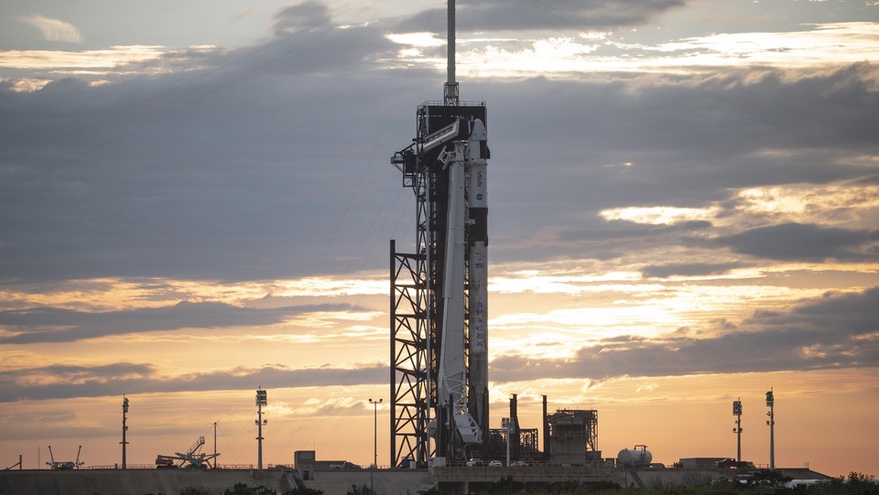Products You May Like
WASHINGTON — The next commercial crew mission to the International Space Station passed its final review before its scheduled April 22 launch, with weather the only major issue.
At an April 20 briefing, NASA said the Crew-2 mission passed its launch readiness review, the final major review before launch. That allows NASA and SpaceX to proceed with a Falcon 9 launch of the Crew Dragon spacecraft Endeavour at 6:11 a.m. Eastern April 22 from Launch Complex 39A at the Kennedy Space Center. The launch has an instantaneous window.
Steve Stich, NASA commercial crew program manager, said officials resolved the one technical issue remaining from the Crew-2 flight readiness review April 15. At that earlier review, SpaceX noted that on a number of recent Falcon 9 launches it loaded slightly more liquid oxygen (LOX) propellant than expected into the rocket’s first stage.
Stich said a technical review concluded that any additional liquid oxygen was “well within family” of analyses of the rocket, including additional loads on the rocket that the excess propellant might create. “We had an exception at the flight readiness review, and we closed that,” he said. He latest estimated that the additional liquid oxygen only accounted for “a very small percentage” of the total weight of the vehicle.
The Falcon 9 also performed a successful static-fire test April 17, followed a day later by a “dry dress rehearsal” where the four astronauts suited up, went to the pad and boarded the Crew Dragon for a practice countdown, although the vehicle itself was not fueled. “The crew is doing great. They’re really excited,” said Norm Knight, deputy manager of the flight operations directorate at NASA’s Johnson Space Center.
The only outstanding issue discussed at the briefing is the weather. Brian Cizek, launch weather officer with the U.S. Space Force’s 45th Weather Squadron, projected an 80% chance of acceptable weather for launch April 22, and 90% if the launch is delayed a day. Winds are the primary concern for the first launch attempt.
However, those probabilities do not include weather at abort locations along the Eastern Seaboard. “Downrange weather is a little bit trickier,” Stich said, citing high winds and high waves in some of the abort locations. “Of the two days right now, I would say Friday looks a little bit better than Thursday.” He said NASA and SpaceX will evaluate the weather again 24 hours before the launch.
If the Crew-2 mission does launch on schedule April 22, the spacecraft will dock with the station at about 5:30 a.m. Eastern April 23. The four people on the spacecraft — NASA astronauts Shane Kimbrough and Megan McArthur, JAXA astronaut Akihiko Hoshide and ESA astronaut Thomas Pesquet — will join the seven people currently on the station.
The station’s crew will be at 11 people through the departure of the Crew-1 spacecraft April 28, returning NASA’s Shannon Walker, Victor Glover and Michael Hopkins and JAXA’s Soichi Noguchi to Earth. That will require some adjustments to the station’s life support systems and temporary sleeping accommodations, said Joel Montalbano, NASA ISS program manager.
“The cool thing again is that the added crew member allows another set of hands on board to help us with research and utilization,” he said, referring to commercial crew’s ability to allow the station to host seven people at a time. “It’s an awesome time to be in human spaceflight.”
